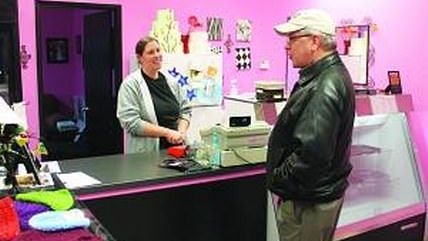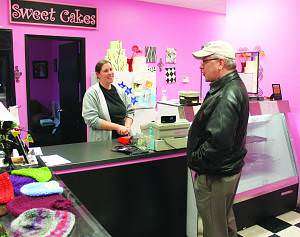Not Baking a Wedding Cake Leads to $135,000 Fine for Hurting Couple's Feelings
Devastating emotional wreckage from being told no by somebody.


The final judgment has come in for Aaron and Melissa Klein, the Gresham, Oregon, bakers who had been found guilty of discriminating against a lesbian couple by refusing to bake them a wedding cake. They've been ordered to pay $135,000 to make up for the emotional damage they caused by telling this couple no. From the Associated Press and KATU in Oregon:
"This case is not about a wedding cake or a marriage. It is about a business's refusal to serve someone because of their sexual orientation. Under Oregon law, that is illegal," the bureau's final order states.
"Within Oregon's public accommodations law is the basic principle of human decency that every person, regardless of their sexual orientation, has the freedom to fully participate in society. The ability to enter public places, to shop, to dine, to move about unfettered by bigotry."
The Oregon Equality Act of 2007 says businesses cannot discriminate or refuse service based on sexual orientation - just as they cannot turn away customers because of their race, sex, diability, age, or religion.
It provides an exemption for religious organizations, schools, and serving alcohol to minors, but does not allow private businesses to discriminate based on sexual orientation.
The Kleins can appeal the ruling. They've already closed their store and now work out of their home by order only, meaning they're no longer a "public accommodation."
A couple of things I want to point out from this full order, readable here.
First of all, the state agency recommended, remarkably, that the Kleins also be required to pay for the emotional damages caused to the couple by media coverage and social media reactions to the case, because the Kleins appeared in the media a couple of times to defend and explain themselves. They wanted the bakers to have to pay further because of the emotional toll of conversations and media coverage over much of which the Kleins had absolutely no control. Fortunately, the commissioner of the Bureau of Labor and Industries ruled against additional damages. The $135,000 is based just on the result of the Kleins telling the couple they would not make them a wedding cake.
The second thing I want to alert folks to is the absurd way this order describes the emotional damage done to this couple. It's something to keep in mind when we talk about issues like hate speech laws and trigger warnings and whether it's appropriate to act as though the government is responsible for protecting people's feelings. Here's a chunk of the text, and there's a lot like it in the full order:
Respondent's denial of service made her feel as if God made a mistake when he made her, that she wasn't supposed to be, and that she wasn't supposed to love, have a family, and go to heaven. … [She] interpreted the denial to represent that she was not a creature created by god, not created with a soul and unworthy of holy love and life. She felt anger, intense sorrow, and shame. These are reasonable and very real responses to not being allowed to participate in society like everybody else.
It was a cake. A cake! She has not been rejected from society. There is no actual argument or evidence presented that their ability to live their lives fully has been impaired by one rejection. In fact, they got a free cake from semi-famous television baker Duff Goldman out of the publicity the state wanted to fine the Kleins for. She sounds like she was driven nearly to suicide because she was rejected by a couple of bakers. I wonder what would have happened if these ladies stumbled across the Phelps family somewhere. They would end up in comas!
Much of the ruling is written in this vein, even though it also acknowledges at one point that testimony from one of the women was prone to exaggeration, and she gave testimony that was contradicted by others. They only considered her testimony when it was completely undisputed or corroborated by others.
In our food-themed August-September issue of Reason currently on the stands (and readable online by digital subscribers here), I explore the wedding cake battle and the legal issues involved. The state is legally in the right here as far as ruling the Kleins have broken public accommodation laws. Making a wedding cake in and of itself doesn't count as a form of speech under the law, and the law does not recognize the Kleins' belief that forcing them to make a cake is the same as offering a stamp of approval and going against their faith. I concluded:
What frequently gets ignored in these political battles—aside from the concept that people should have the right to associate (or not associate) with whomever they choose—is whether the law is the best tool to resolve these conflicts. Many wedding businesses are falling all over themselves to compete in this new and potentially profitable market. There is little indication that gay couples actually need the government to force resistant religious bakers to fire up their mixers in order to have the wedding of their dreams.


Show Comments (324)